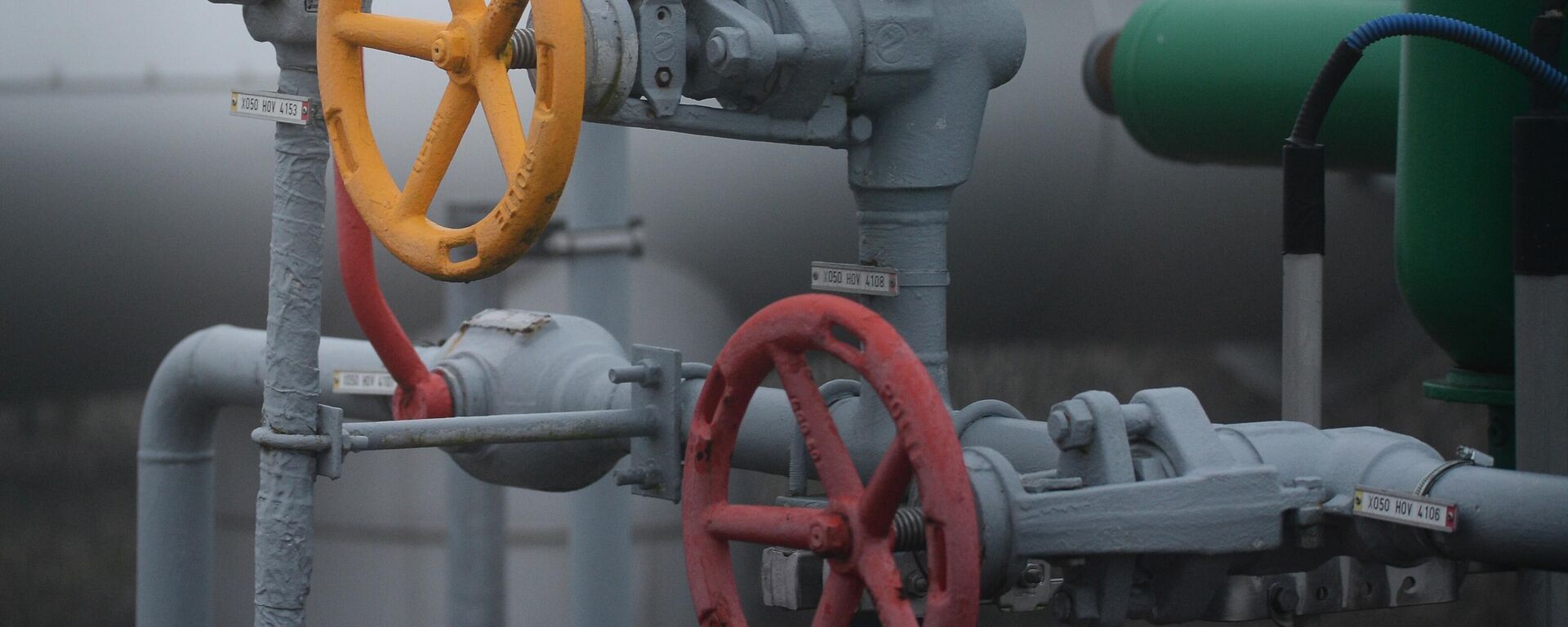https://en.sputniknews.africa/20240908/why-trans-saharan-gas-pipeline-faces-persistent-delays-russian-expert-reveals-1068201782.html
Why Trans-Saharan Gas Pipeline Faces Persistent Delays? Russian Expert Reveals
Why Trans-Saharan Gas Pipeline Faces Persistent Delays? Russian Expert Reveals
Sputnik Africa
The Trans-Saharan Gas Pipeline (TSGP), a long-awaited project that has been in development since the 1970s, is once again facing delays, with completion now... 08.09.2024, Sputnik Africa
2024-09-08T16:38+0200
2024-09-08T16:38+0200
2024-09-09T12:56+0200
opinion
africa insight
nigeria
niger
europe
sputnik africa
liquefied natural gas (lng)
algeria
west africa
north africa
https://cdn1.img.sputniknews.africa/img/07e8/08/08/1067781921_0:160:3072:1888_1920x0_80_0_0_9259df3ff81d4c3b48be101edb2c8b9d.jpg
The strong presence of Western oil companies in Nigeria makes the development of the pipeline more complex, Vsevolod Sviridov, Deputy Director of the Centre for African Studies at HSE University, Moscow, told Sputnik Africa.These companies prefer to export Nigerian gas as liquefied natural gas to markets in Europe, Asia, and beyond, rather than contributing to the pipeline's success.Sviridov added that the pipeline also lacks a proven economic model, and this uncertainty has caused hesitation among investors and stakeholders, putting the project's viability at risk.Furthermore, the pipeline is seen as a critical infrastructure project for the region. The project's impact on local economies, particularly in Northern Nigeria and Niger, is expected to be significant, with potential benefits including job creation, improved electricity supply, and enhanced food security.However, the environmental sustainability of the TSGP remains a concern. Sviridov stressed the importance of empowering local authorities to manage the pipeline's environmental impact.Proper oversight is crucial to prevent ecological damage and ensure the project's long-term sustainability, he added.The TSGP has the potential to serve as a model for future regional energy projects in Africa, fostering collaboration and integration among African nations. However, as Sviridov pointed out, the project must first overcome its current challenges.
https://en.sputniknews.africa/20240828/trans-saharan-gas-pipeline-to-supply-intl-market-with-gas-from-3-african-nations-nigerien-minister-1068036770.html
nigeria
niger
europe
algeria
west africa
north africa
west
Sputnik Africa
feedback@sputniknews.com
+74956456601
MIA „Rossiya Segodnya“
2024
Christina Glazkova
https://cdn1.img.sputniknews.africa/img/07e7/0b/07/1063380906_0:0:673:674_100x100_80_0_0_79628b4d0cd9f29291a57aa13bbf9e7a.jpg
Christina Glazkova
https://cdn1.img.sputniknews.africa/img/07e7/0b/07/1063380906_0:0:673:674_100x100_80_0_0_79628b4d0cd9f29291a57aa13bbf9e7a.jpg
News
en_EN
Sputnik Africa
feedback@sputniknews.com
+74956456601
MIA „Rossiya Segodnya“
Sputnik Africa
feedback@sputniknews.com
+74956456601
MIA „Rossiya Segodnya“
Christina Glazkova
https://cdn1.img.sputniknews.africa/img/07e7/0b/07/1063380906_0:0:673:674_100x100_80_0_0_79628b4d0cd9f29291a57aa13bbf9e7a.jpg
africa insight, nigeria, niger, europe, sputnik africa, liquefied natural gas (lng), algeria, west africa, north africa, gas, gas pipeline, energy, employment, economy, west, politics
africa insight, nigeria, niger, europe, sputnik africa, liquefied natural gas (lng), algeria, west africa, north africa, gas, gas pipeline, energy, employment, economy, west, politics
Why Trans-Saharan Gas Pipeline Faces Persistent Delays? Russian Expert Reveals
16:38 08.09.2024 (Updated: 12:56 09.09.2024) Christina Glazkova
Writer / Editor
The Trans-Saharan Gas Pipeline (TSGP), a long-awaited project that has been in development since the 1970s, is once again facing delays, with completion now expected by 2027. Despite its potential to transform the energy landscape of Nigeria, Niger, and Algeria, numerous obstacles continue to hinder its progress.
The strong presence of
Western oil companies in Nigeria makes the development of the pipeline more complex,
Vsevolod Sviridov, Deputy Director of the Centre for African Studies at HSE University, Moscow, told
Sputnik Africa."Nigerian gas [...] still remains almost hostage to a group of European and Western oil companies [...] who are not interested in this gas being injected into the pipeline," Sviridov explained.
These companies prefer to export Nigerian gas as
liquefied natural gas to markets in Europe, Asia, and beyond, rather than contributing to the pipeline's success.
Sviridov added that the pipeline also lacks a proven economic model, and this uncertainty has caused hesitation among investors and stakeholders, putting the project's viability at risk.
"The [...] issue with this project is that it does not have a proved economic model," the deputy director said.
Furthermore, the pipeline is seen as a critical infrastructure project for the region. The project's impact on local economies, particularly in Northern Nigeria and
Niger, is expected to be significant, with potential benefits including
job creation, improved electricity supply, and enhanced food security.
"It will certainly improve the situation with electricity supply because in Nigeria, there are plenty of gas-fired power plants that are just staying idle without gas," noted Sviridov.
However, the environmental sustainability of the TSGP remains a concern. Sviridov stressed the importance of empowering local authorities to manage the pipeline's
environmental impact."The thing here is about establishing and empowering local authorities who are responsible for environmental management [...] in order to give them tools necessary for inspections," the expert said.
Proper oversight is crucial to prevent ecological damage and ensure the project's long-term sustainability, he added.
The TSGP has the potential to serve as a model for future regional energy projects in Africa, fostering collaboration and integration among African nations. However, as Sviridov pointed out, the project must first overcome its current challenges.
"This project would be a role model here," he said, but only if it can navigate the complex landscape of economic, political, and environmental issues that continue to delay its completion.



